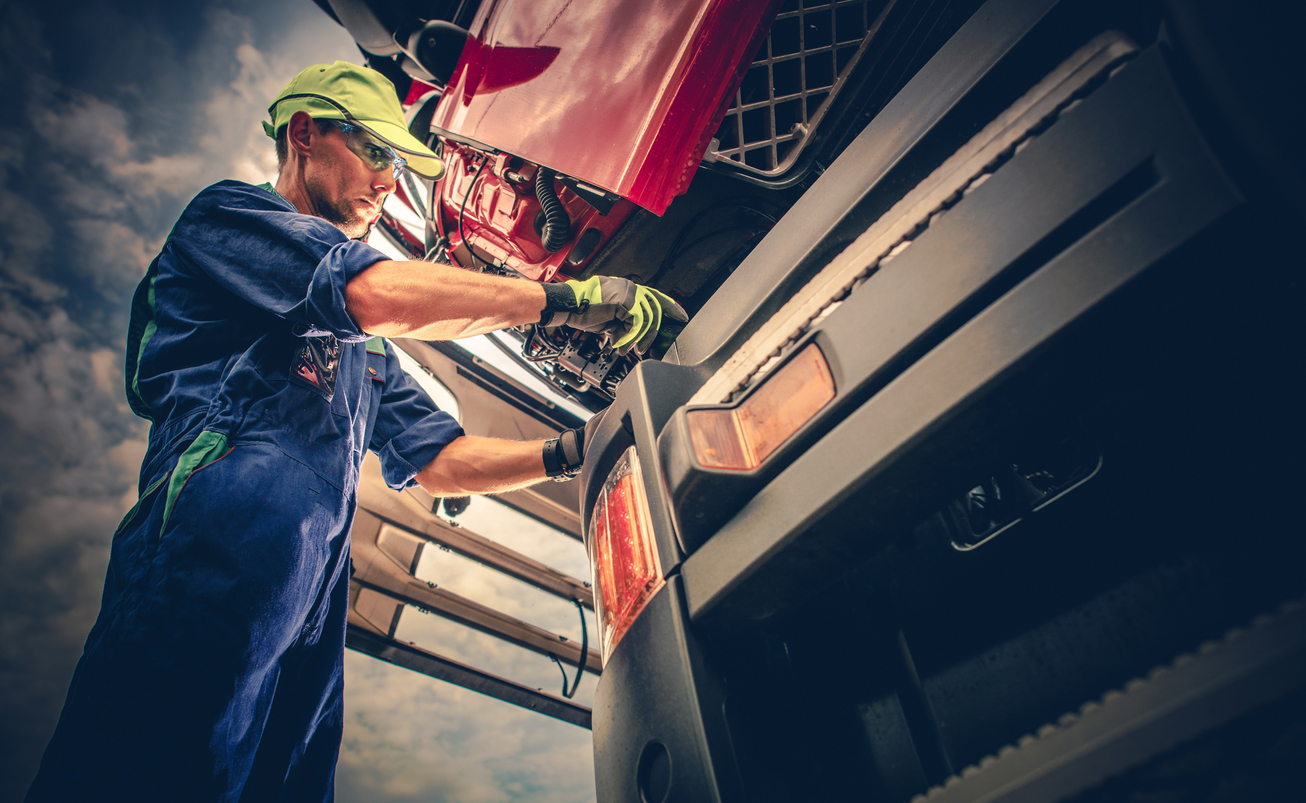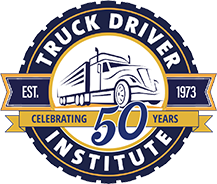How to Ensure Proper Commercial Truck Maintenance

To everyone involved in the truck driving industry, proper commercial truck maintenance is a must. If your commercial vehicle is out of sorts or not properly maintained, this can cause issues for everyone: from the dispatchers to the mechanics, the drivers, to the consumers. So what goes into proper truck maintenance? Is it just keeping your cab squeaky clean and your engine healthy? There’s more that goes into keeping the entire truck driving system and community up and running. Keep reading to find out how to ensure proper commercial truck maintenance!
How Much Maintenance Do Commercial Trucks Need?
Commercial trucks need much more maintenance than regular private vehicles because of their larger size, freight, and frequent use. After all, the truck driving industry accounts for 72.6% of total domestic tonnage shipped in the United States. That’s a large majority of the economy relying on trucks! This means they need that extra care, with pre-trip and post-trip checks, keeping the engine and cab extra clean, and trying to prevent any damage when possible. The cost of semi-truck maintenance and repair can go upwards of $15,000, which means if there are extra/out-of-the-ordinary costs, it could be way more–which is why it’s essential to care for semi-trucks regularly to prevent these additional repair costs.
What Types of Commercial Trucks Need Maintenance?
No matter the size of the truck, they all require maintenance! Different trucks can handle different size freight, which means they’ll require more care to ensure they can carry the load. Many different commercial truck types require maintenance (depending on your truck driver company), including:
- Semi-trucks,
- Box-trucks,
- Pick-up trucks,
- To trucks,
- Step vans,
- Cargo vans,
- Passenger vans,
- Buses,
- Motor coaches,
- Minibusses,
- And more.
Pre-Trip Checklist
Pre-trip checklists ensure every aspect of your commercial vehicle is adequately cared for. They cover nearly every part of the motor vehicle and driving experience so that every trip is smooth sailing from start to finish. The pre-trio checklist includes (but is not limited to):
- Tire pressure,
- Vehicle fluids, including windshield wiper fluid, anti-freeze, brake fluid, and more,
- Windshield and window glass–if there’s even the tiniest crack, it needs to be fixed and replaced,
- Tread depth,
- Lights, including both head-, tail-, and dash lights,
- Cabin temperature,
- Side and rearview mirrors,
- Freight weight
- Freight security
- Freight care
- And more.
A couple of handy phrases to help you through the processes are:
- “ABC:” Abrasions, bulges, or cuts, which means that you should be checking for any of these across your pre-trip vehicle inspection
- “PMS:” Properly mounted and secure, which means every attachable and detachable exterior and interior part should be properly secured so it doesn’t fly off in the middle of a haul
- “CBB:” Cracked, bent, broken, which means similar to ABC
- “Not leaking:” Ensuring the fluids stay inside the vehicle and don’t escape!
Tires
As mentioned above, tires are always something to check before and post-trip. Tire pressure and tire tread depth can change immediately due to debris–including rocks, potholes, freight weight, and more–and other roadside variables, so checking them regularly is essential. DOT (Department of Transportation) requirements state that steer tires must meet a legal minimum tread depth of 4/32 of an inch (while all other truck and trailer tires must have a tread depth of 2/32 of an inch) to be road-safe. If your truck’s tires don’t meet this minimum, it’s time to change them out!
Vehicle Fluids
Vehicle fluids are many and multiple throughout eighteen-wheelers and semi-trucks. There’s oil (which trucks of this size take a lot of!), transmission fluid, gasoline, windshield wiper fluid, engine coolant, brake fluid, differential fluid, hydraulic clutch fluid, and power steering fluid; who knew a commercial vehicle had this many fluid ounces in it just to keep running? Each fluid has its own role, just as every gear, nut, and bolt does. Checking each type to ensure it’s either clean, like oil, or filled up, like windshield wiper fluid, will keep every trip running efficiently.
Electrical System and Its Wiring
The electrical system is also an essential factor. After all, the electrical and wiring systems handle the brake lights, check engine lights, engine, tire connections, and everything in a truck! If one goes wrong, it’s more likely that another will, too. Regular maintenance will keep the electrical system and all components wiring up to scratch.
Brakes
One of the most essential parts of the truck, the brakes, can and should be regularly checked–as often as possible if you can! Especially with such a large truck (not even counting the weight of the freight it’s hauling across hundreds and even thousands of miles), the brakes can take a lot of wear and tear, both natural and unnatural, simply from how often they’re used. The amount of pressure put on these brakes is enormous, so keeping them from wearing too far down is vital to the truck driver’s health and safety and the many cars on the road with them!
Post-Trip Checklist
Like the pre-trip checklist, the post-trip checklist should check all the same things and more. Now that you’ve arrived at your destination and are either in the process of unloading your freight or have already unloaded it, it’s essential to check in and see how your commercial vehicle has handled the journey.
Some customers and truck driving businesses have specific lists and requirements for loading and unloading freight, so checking in with each customer is important. Some questions and observations are: Are there differences from how the truck initially drove at the start of the trip compared to the end? Is there any noticeable wear and tear to the truck bed? Did any of the freight receive any wear, tear, or damage?
TDI is Here to Help You
Have no fear; TDI is here–to help YOU ensure proper commercial vehicle maintenance! Contact us today to get started on ensuring you have the most proper maintenance crew and trucks around.
Get Started
Get your Class A CDL in our friendly, supportive CDL training program. TRAIN with experienced instructors – multiple good-paying, secure job choices with benefits available for eligible graduates. EARN $700 – $1000+ / week to start as a truck driver. Get started today by filling out the form below. We look forward to hearing from you!
